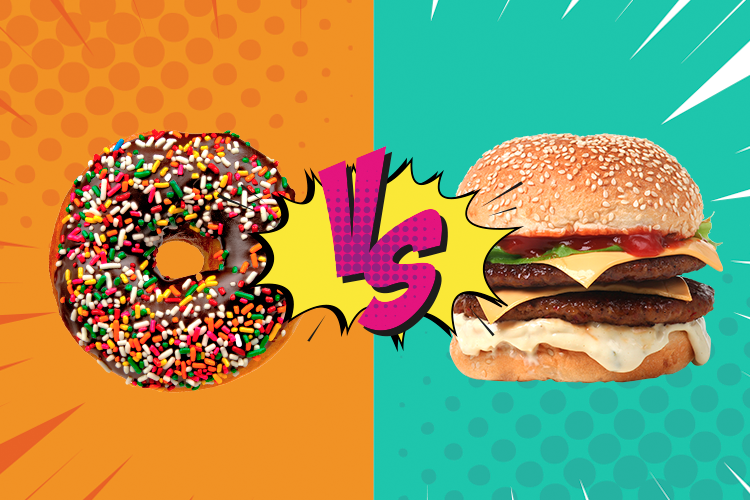Fat or sugar? Which is worse?
For many, peeking at a grocery item’s nutritional facts is common practice. The line item that draws a customer’s initial attention, however, varies greatly. Some consumers believe fat should be avoided at all costs, while others see sugar as the real criminal. With new research pouring in every day, it’s hard to know which one is actually worse. What do you think?
PERSPECTIVES
There are a variety of different kinds of fats (trans, saturated, monounsaturated, and polyunsaturated) found in foods, and for many consumers, it can be hard to keep track. According to Business Insider, the World Health Organization recently recommended banning trans fats worldwide (trans fat was recently banned in the US, although it can still be found in some foods), claiming that doing so could save up to 500,000 lives each year.
Trans fat in particular has no positive effects to its name; it increases cholesterol and causes inflammation, both of which can lead to heart disease, stroke and a number of other chronic conditions.
Meanwhile, saturated fats can be found in things like whole milk, coconut oil, and many baked goods. If someone is eating too much saturated fat, they will raise their cholesterol. According to Harvard Health Publishing:
For that reason, most nutrition experts recommend limiting saturated fat to under 10% of calories a day.
In 2014, the World Health Organization dropped its recommended daily intake of sugar from 10% to 5%. The shift represents the massive impact sugar has on the body-5% of a 2400-calorie diet is 120 calories from sugar, which is more than what is in a single can of coke.
Sugar increases risk for weight gain, heart disease and even cancer. By ignoring the added sugars found in beloved foods like ketchup, yogurt, cereal and even protein bars (looking at you, Clif Bar), consumers put themselves in a high-risk environment on a daily basis.
World Health Organization lowers sugar intake recommendations
With the ill effects of trans and saturated fat in mind, it’s hard to fully grasp whether or not the fats in individual foods are the “good” or “bad” kind. Sure, avocados and almonds have a positive “healthy fat” reputation now, but what about all the fat in cheese? Bacon? It’s impossible to expect consumers to do their research on the differences between good and bad fats, making it easier to just stay away from fat completely.
After all, buying the reduced-fat options in things like yogurt, crackers and condiments just seems like common sense.
It’s an old adage: “If it tastes good, it’s probably bad for you.” The crux of this maxim is sugar. Everyone knows sugar is bad, but in practice, no one seems to care.
This perception may be a result of sugar companies themselves. In the 1960s, public perception of sugar shifted in large part due to research sponsored by the sugar industry. In 2016, JAMA Internal Medicineconducted a study of internal documents within the industry; the results seem unsurprising:
Our findings suggest the industry sponsored a research program in the 1960s and 1970s that successfully cast doubt about the hazards of sucrose while promoting fat as the dietary culprit in [coronary heart disease].
The truth is, sugar companies shifted the blame to fats, and consumers are still suffering the consequences. The public’s fear of fat is deep-seated-the word “fat” itself carries a negative connotation. But the super villain in all of this is sugar. It’s still winning a decades-long battle where the key strategy is deceit.









Recent Comments